AITA for calling my boyfriend an insecure little boy after his repeated jokes that I "cheated the system" to get to a career that pays more than his?
Tim and the narrator’s love story began in the quiet corners of an English literature class, blossoming through a decade of shared dreams and quiet compromises. Their journey was marked by unspoken understandings—Tim’s steady path in IT and the narrator’s winding road through liberal arts and non-profit work—both embracing an equal partnership even when the scales tipped in income.
But life has a way of rewriting expectations. The narrator’s unexpected leap into the corporate world as a consultant brought not just success, but a staggering salary that challenged the balance they had carefully maintained. Amidst pride and hesitation, the silent question lingered: how does love hold up when the numbers don’t add up the way they once did?


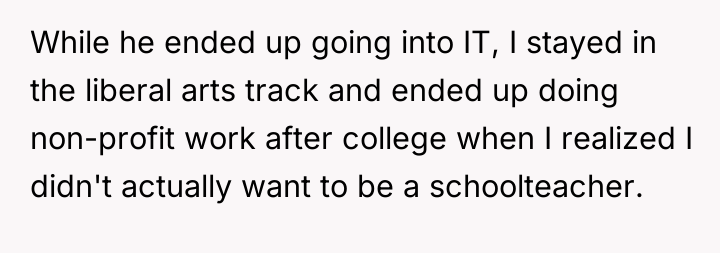
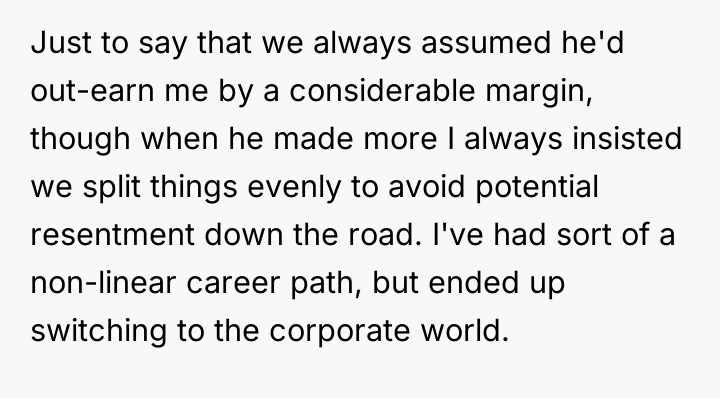
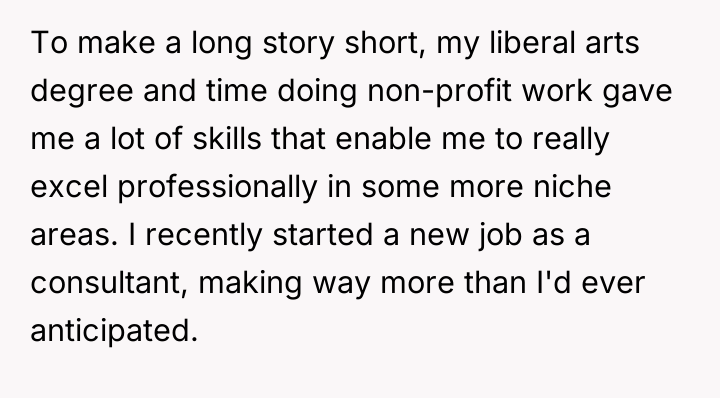
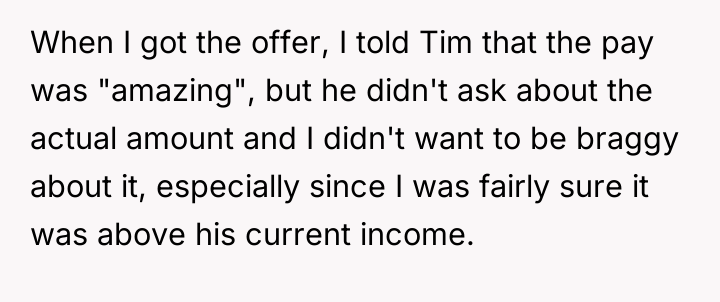
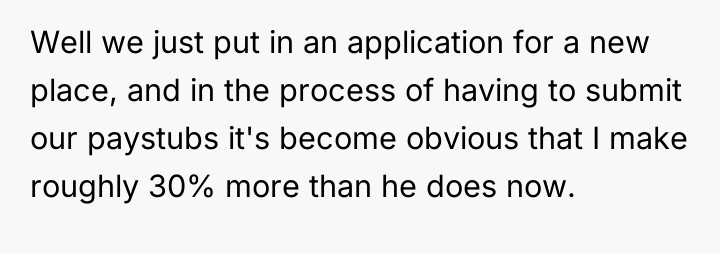

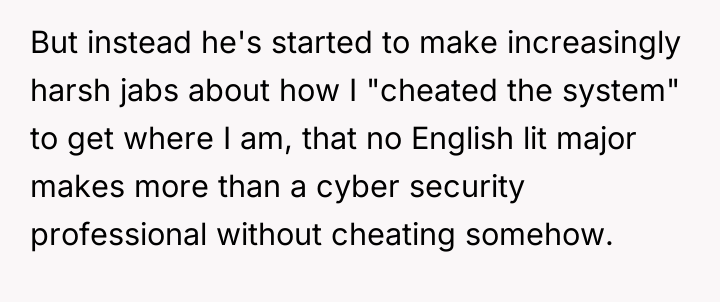
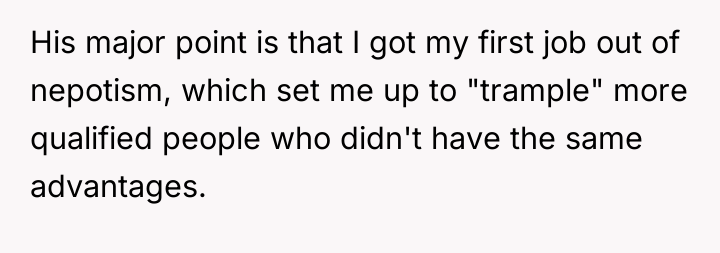
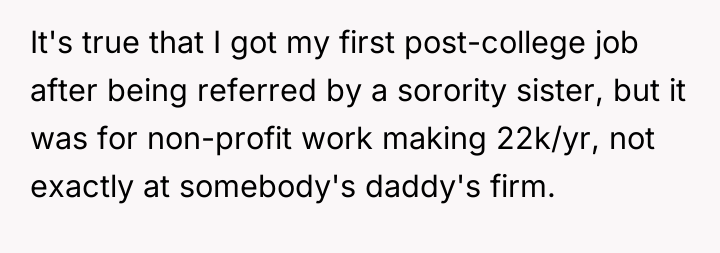
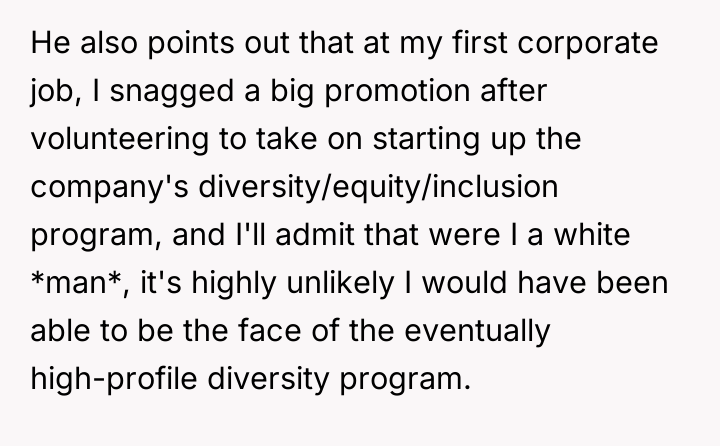
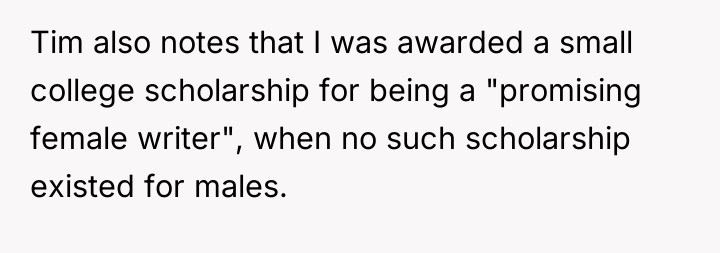
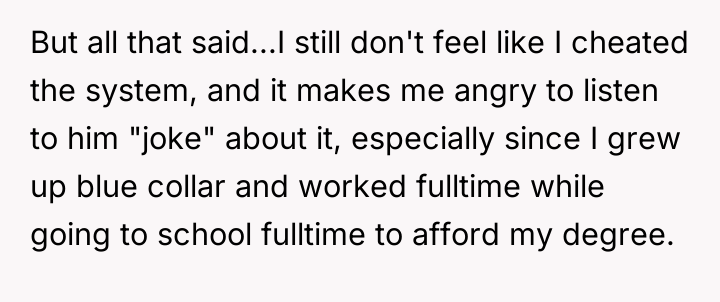
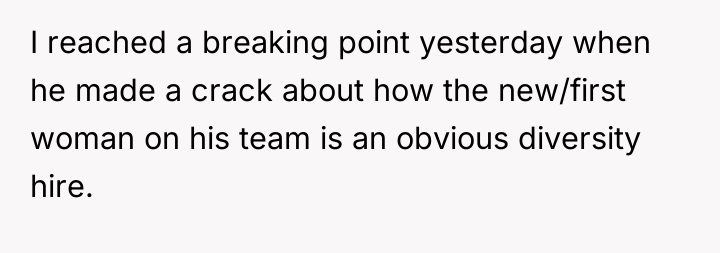
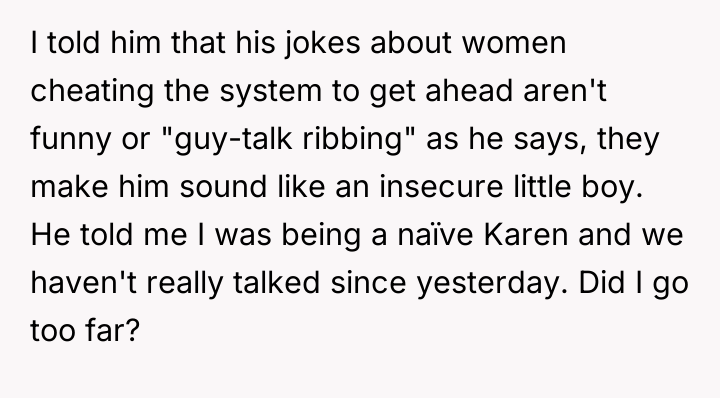
Subscribe to Our Newsletter
As renowned researcher Dr. Brené Brown explains, “Boundaries are the distance at which I can love you and me simultaneously.” In this scenario, the OP’s success has inadvertently exposed an existing vulnerability in the relationship's established power dynamic, causing Tim to erect defensive boundaries manifesting as aggressive critique. Tim’s behavior suggests deep-seated insecurity related to his perception of his own professional standing relative to the OP. While the OP’s career path involved leveraging networking (nepotism for a low-paying initial job) and advocating for social equity initiatives (DEI program), which are recognized, legitimate paths to advancement, Tim frames these as inherently illegitimate 'cheats.' This cognitive framing allows him to avoid confronting his own feelings of diminished status. The OP's response—calling him an 'insecure little boy'—while emotionally charged and likely accurate in expressing her frustration, crossed a relational boundary by attacking his character rather than focusing solely on the unacceptable nature of his sexist remarks. The OP’s actions in standing up to Tim’s undermining comments were appropriate in defending her integrity. However, to move forward constructively, she should separate the critique of his sexist comments from a personal attack. A better future approach would involve addressing the underlying relationship dynamic: establishing a clear boundary that career success, regardless of the mechanism, will not be a subject for derogatory 'jokes,' and then inviting Tim to discuss his feelings of inadequacy directly, rather than letting the resentment fester into attacks.
THE COMMENTS SECTION WENT WILD – REDDIT HAD *A LOT* TO SAY ABOUT THIS ONE.:
The community had thoughts — lots of them. From tough love to thoughtful advice, the comment section didn’t disappoint.
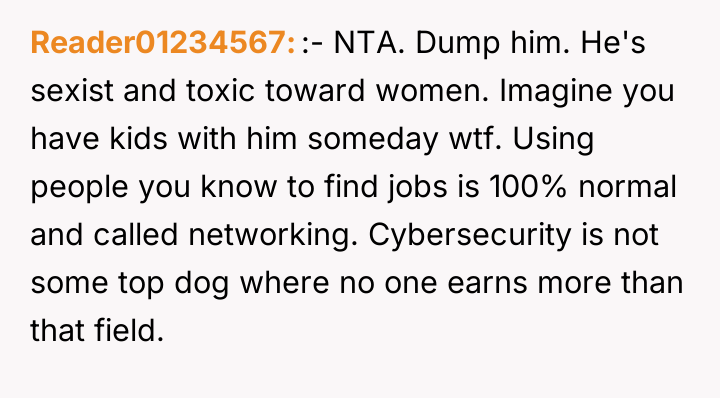
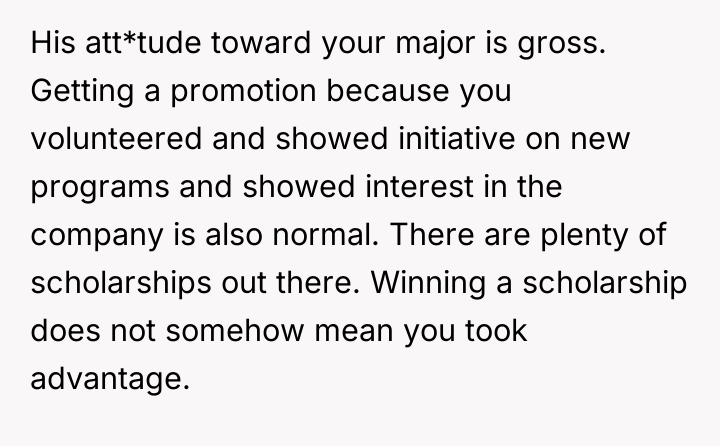
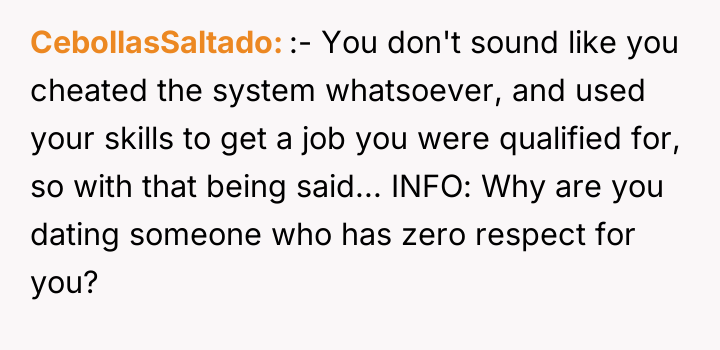
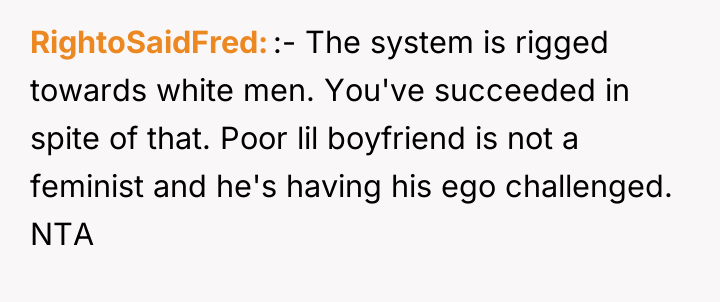
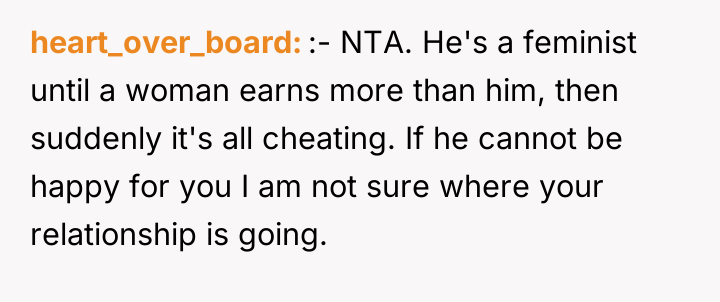
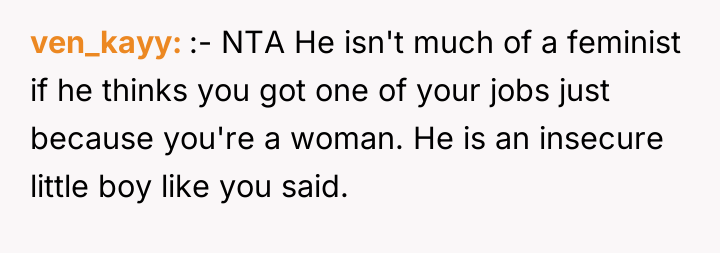
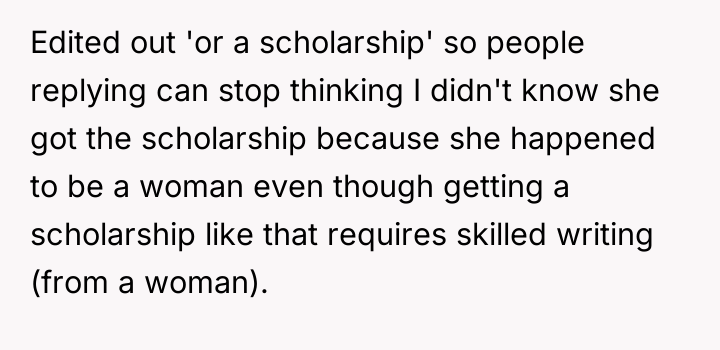
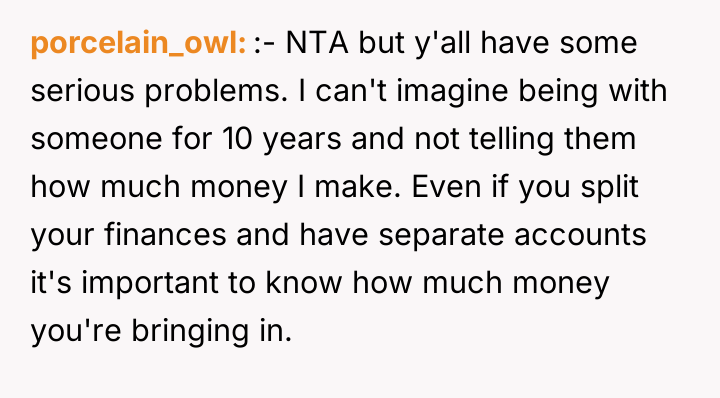
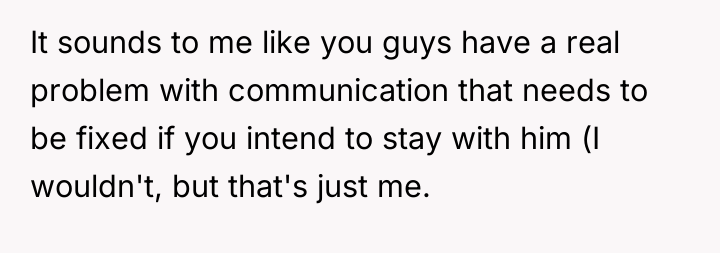

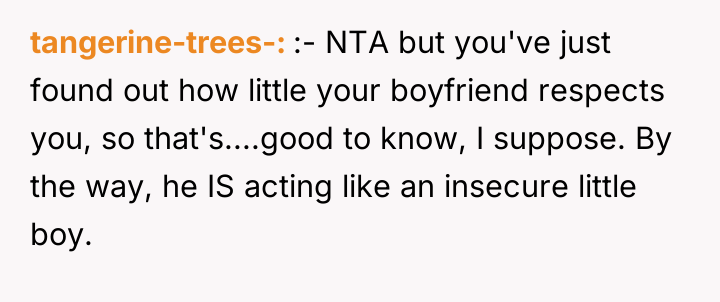
The original poster (OP) is facing conflict because her partner, Tim, is reacting with resentment and making accusatory comments about her career success, which she earned through hard work and strategic career moves. The central tension lies between OP's belief that her success is deserved and Tim's insistence that she must have somehow taken an unfair advantage, undermining her accomplishments based on societal structures.
Is OP justified in confronting Tim so sharply regarding his comments about her career being based on 'cheating the system,' or did her response escalate the situation beyond a simple disagreement about gender dynamics and professional achievement?